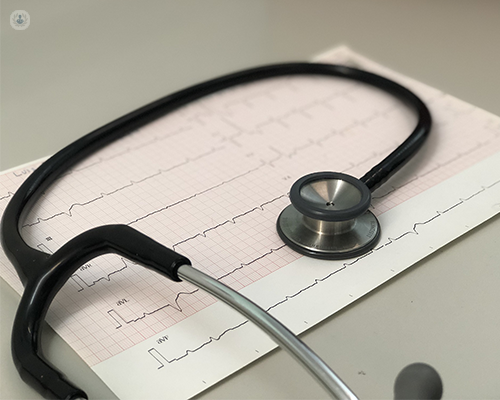Are ectopic heartbeats dangerous?
Written by:Abnormal heartbeats may sound like a frightening concept, but as Dr Boon Lim explains in this article, they aren't always dangerous. In fact, most often there is no cause for concern. Read on to find out when you should be concerned, and when it's time to seek medical help.

What are ectopic heartbeats?
Ectopic beats are abnormal heartbeats which arise from either the top or the bottom chambers of the heart, and these chambers are not your natural pacemaker beats of the heart. So, for example, in a typical 24-hour period, your natural pacemaker generally gives you 100,000 heartbeats. However, we would say that ectopic beats that arise from other sites of the heart may occur 50 to say 400 times in that 100,000 cycle that occurs over 24 hours.
Can a person notice the abnormal heartbeats?
Ectopic beats can be felt by patients as palpitations. For example, the major symptom of an ectopic beat is an extra heartbeat or a skipped heartbeat, and that's when you feel your heart lurching or when you feel an extra-strong heartbeat that only occurs momentarily. More rarely, you get ectopic beats that occur in quick succession. In this case, you would have one ectopic beat, one normal beat, one ectopic beat and so on. Alternatively, you could have ectopic beats that go maybe five or six times and then stop, and then perhaps two minutes later you get another flurry of ectopic beats that lasts five or six beats. This can be very disconcerting.
Are ectopic beats dangerous?
It depends. Ectopic beats that occur in a very low frequency, for example, if one single beat occurs and then normal heartbeats follow for several minutes, can be very, very safe. It can be very disconcerting though, and you may feel highly symptomatic with this disturbing sensation that your heart is lurching or skipping a beat now and again, but so long as it occurs in a relatively low frequency and occurs in single isolated beats, this can be fairly safe and benign.
Ectopic beats can be more sinister or dangerous, for example when they arise from the ventricle or the pumping chamber of the heart, particularly if the burden of the ectopic beats is high. This ‘burden’ refers to the percentage of ectopic beats compared to all your other heartbeats.
What is a high burden?
We've studied hundreds of thousands of patients to look at the ectopic beat burden, and a high burden depends on the individual and any other heart conditions they may have. If you have a structurally normal heart, it is said that anything below 10,000 beats or 10% in burden over 24 hours is typically fairly safe and will not lead to any long-term consequences on your heart. However, if you have a burden of ectopic beats that is closer to 50%, for example, which is coming from your ventricle, then you can imagine that every other heartbeat is abnormal and that rhythm is also known as ventricular bigeminy. This can deteriorate your heart pump function very rapidly. If you do have such frequent episodes of ectopic beats, it's worth seeing a doctor urgently.
Dr Boon Lim is a highly accomplished cardiologist in London. Visit his profile to learn how he can assist you in keeping your heart healthy.


